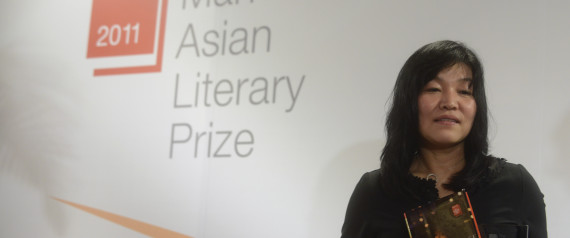 AARON TAM via Getty Images
AARON TAM via Getty Images
In South Korea, plagiarism has been a major topic in the news.
It began in June when popular South Korean author, Shin Kyung-sook, was accused of plagiarism in her short story Legend, which was part of a compilation she published in 1996.
According to the allegations, which were made by novelist Lee Eung-jun, Shin took several passages from an earlier work by a Japanese author. Though she initially denied the allegations, Shin eventually admitted to the plagiarism and her publisher pulled the story out of circulation.
In September, another Korean author, Park Min-gyu, admitted to plagiarizing two of his stories, including borrowing a part of an article online in one story and basing another one of his works on the plot of an earlier story.
However, it hasn’t just been the creative industry that’s been impacted. The government has also been besieged by plagiarism allegations.
In August, new Health Minister Chung Chin-youb was inaugurated despite allegations that he had plagiarized three of his academic research papers published by the Korean Orthopaedic Association, all of which contained content copied from theses by master’s students learning underneath him.
Similar allegations have been made against other Ministers, none of whom have been pressured into stepping down.
The focus on plagiarism in government continued in September. Then, public officials, namely those at the Ministry of Trade, Industry and Energy were accused of plagiarizing in reports that they submitted after attending an overseas training program.
The reports were required to to secure the state’s financial support of the training, however, many of those who attended submitted reports that contained large portions copied and pasted from earlier works without attribution. This has led many to say that the program is a waste of taxpayer money.
The deluge of scandals is showing that plagiarism is at the forefront of the South Korean conscious, including creatively, academically and politically. Similar awakenings in countries have had mixed results.
Where Germany has seen multiple prominent politicians lose their degrees and their careers over plagiarism allegations, other countries, such as Romania and Russia, have watched as plagiarism allegations get pushed to the side.
However, a lot is on the line for South Korea here. How it addresses the issue of plagiarism will be a major factor in determining the role the country will play creatively and academically in the global market. Countries that become known, even unfairly, as safe havens for unethical work struggle to have their discoveries and creations taken seriously at the international level.
On the creative site, the Korean publishing industry is said to already be eyeing reforms to better catch and handle plagiarism issues. However, academically, there seems to be less push, with politicians being sworn in despite serious content integrity questions.
If Korea is able to make the needed reforms and changes, it can likely come through this rough summer not just unscathed, but even stronger. However, if it fails to react and the deluge of negative headlines continues, the country’s reputation could be harmed, hurting most the scientists and creatives doing excellent and honest work in the country.
The opinions expressed in this article are those of the author, Jonathan Bailey of Plagiarism Today, and do not reflect the opinions of iThenticate.